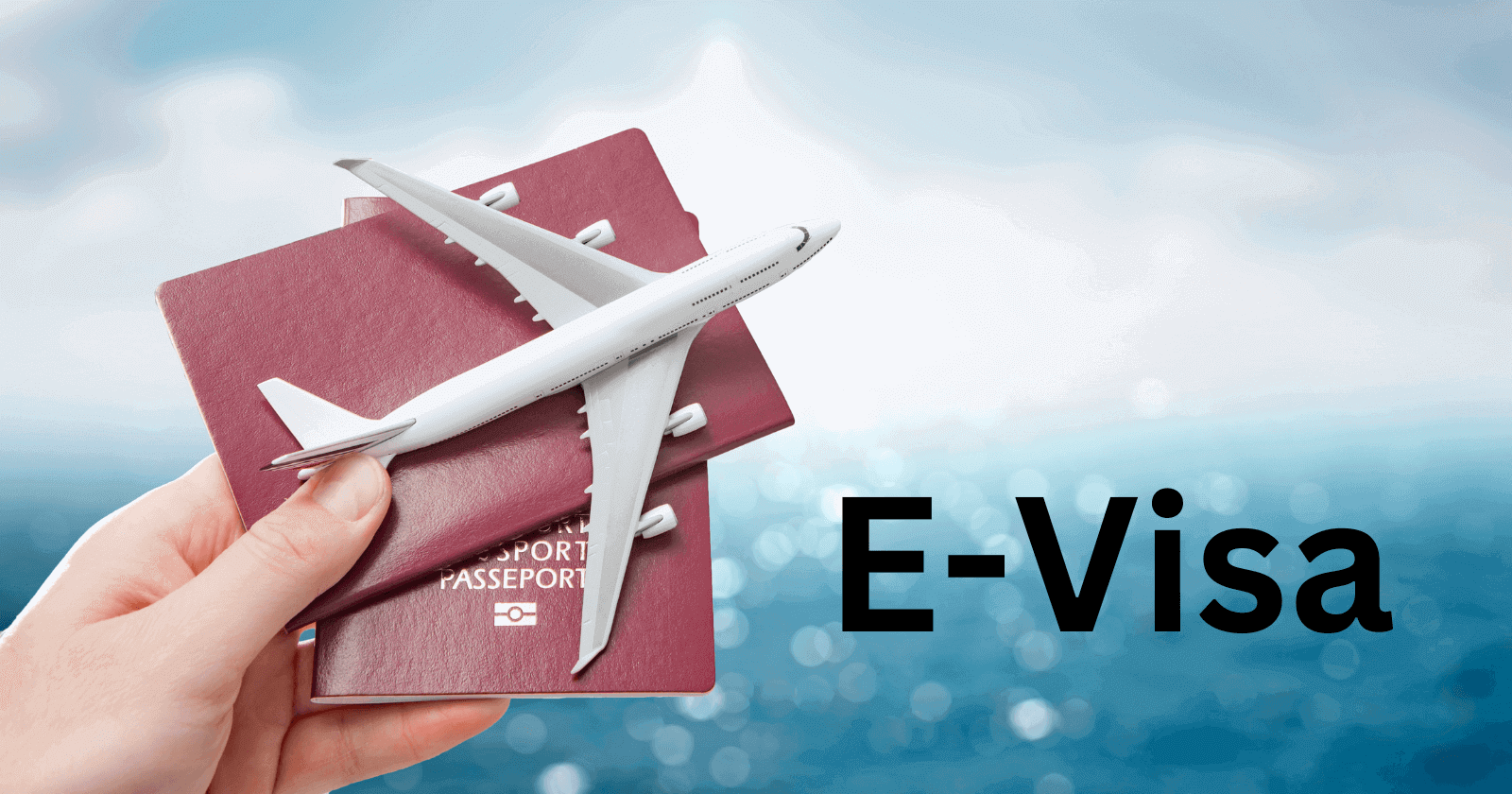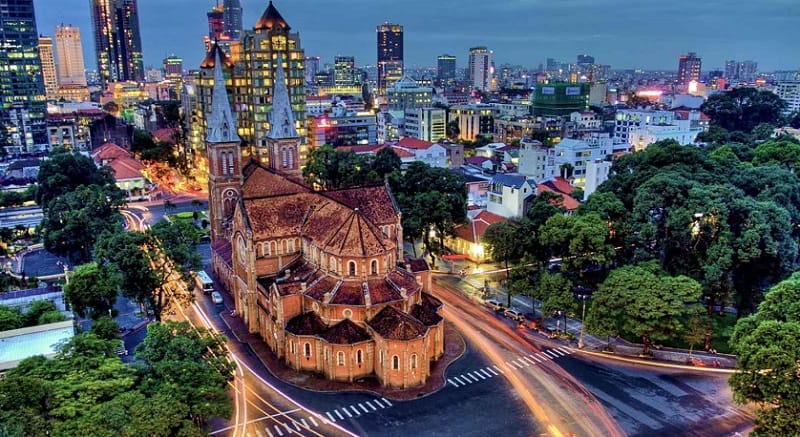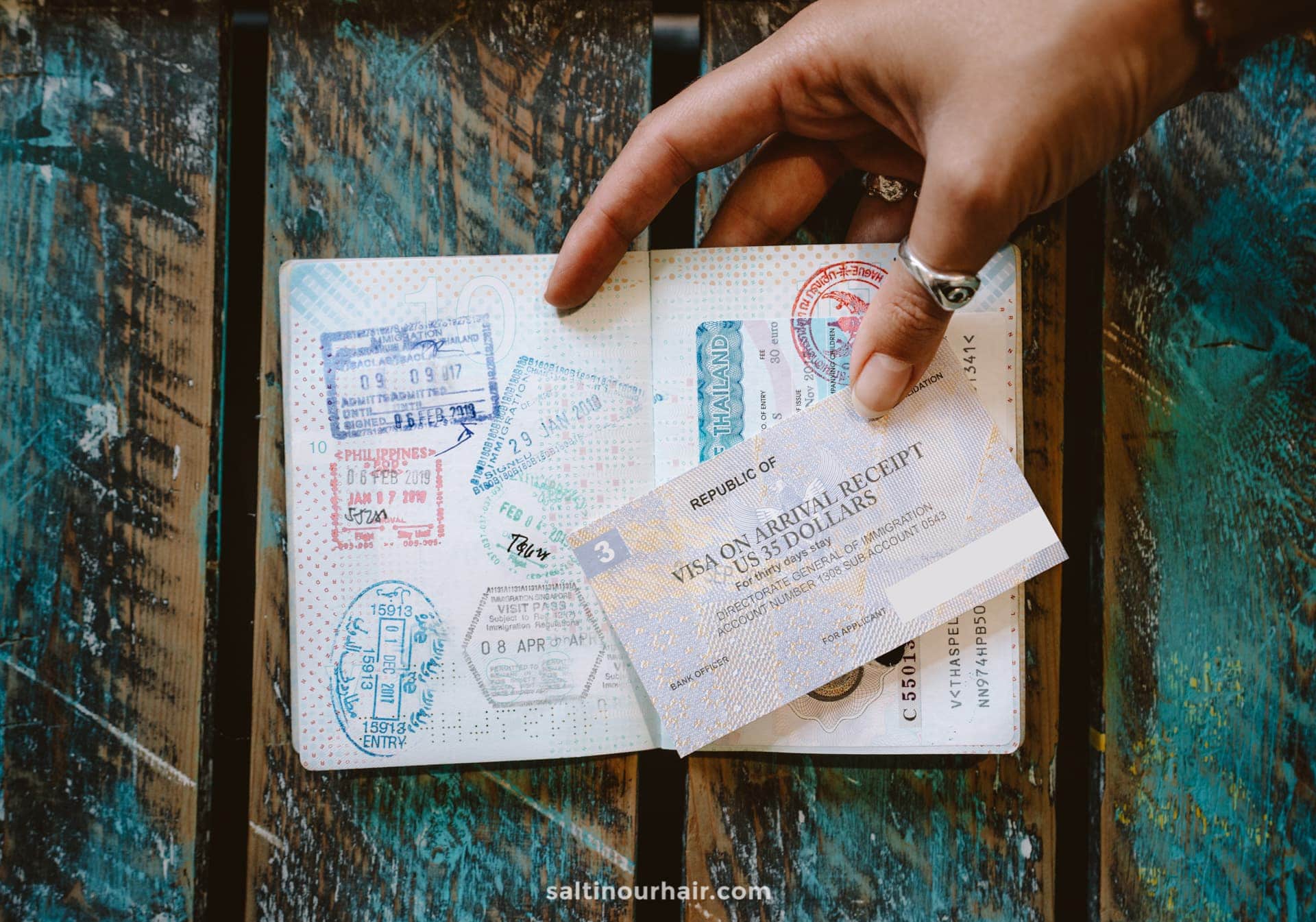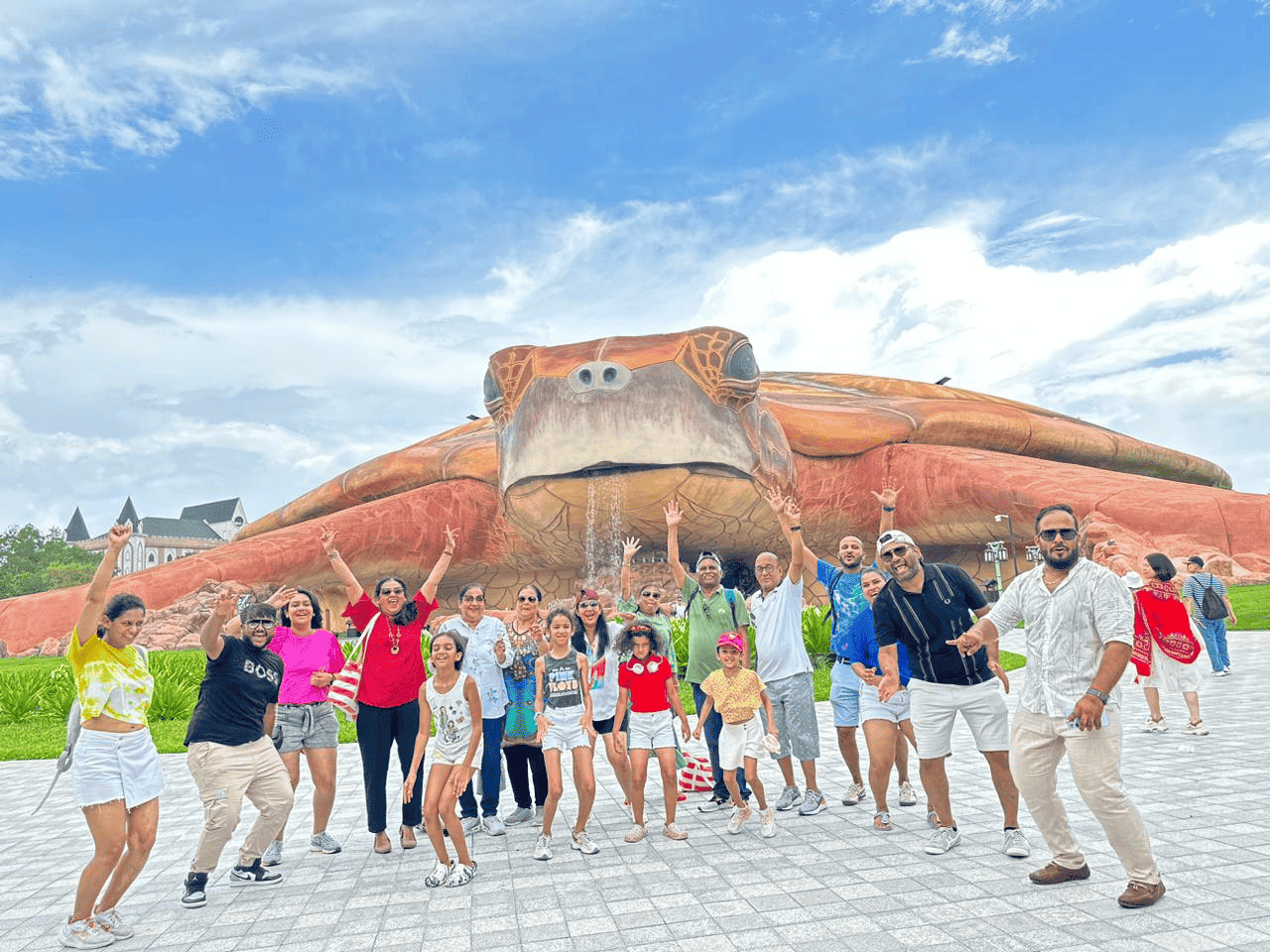Navigating Borders – Visa Solutions for Vietnamese Expats Abroad
Visa solutions for Vietnamese expats abroad are essential for maintaining legal residency, facilitating travel, and ensuring access to opportunities in their adopted countries. This article explores the diverse range of visa options, challenges, and pathways available to Vietnamese citizens living and working overseas, providing valuable insights and practical advice for navigating the complexities of international immigration.
Understanding the Visa Landscape for Vietnamese Expats

Vietnamese expats encounter a varied and often intricate web of visa requirements depending on their host country, their purpose of stay (work, study, family reunification), and their individual circumstances. A thorough understanding of the available visa options and eligibility criteria is crucial for ensuring legal residency and avoiding potential immigration issues.
Types of Visas Available to Vietnamese Expats
The visa landscape is diverse, offering different pathways for Vietnamese citizens seeking to live and work abroad. Understanding these categories is the first step toward finding the right solution.
- Work Visas: These are typically sponsored by an employer and allow Vietnamese citizens to work legally in a foreign country. The requirements vary widely depending on the industry, skill level, and the specific country’s immigration policies. Skilled workers, professionals, and those in high-demand occupations often have greater opportunities. Work visas often require proof of qualifications, relevant experience, and a job offer from a recognized employer.
- Student Visas: For Vietnamese students pursuing education abroad, student visas are essential. These visas require proof of enrollment in an accredited educational institution, sufficient financial resources to cover tuition and living expenses, and an intention to return to Vietnam upon completion of the studies. The application process often involves submitting academic transcripts, standardized test scores, and a statement of purpose.
- Family Visas: Family visas allow Vietnamese citizens to join their family members who are already residing legally in a foreign country. These visas are typically available to spouses, dependent children, and sometimes parents of citizens or permanent residents. The eligibility criteria vary depending on the relationship and the specific country’s immigration laws. Supporting documentation often includes marriage certificates, birth certificates, and proof of the sponsor’s income and residency status.
- Investment Visas: Some countries offer visas to individuals who invest a significant amount of capital in the local economy. Investment visas can provide a pathway to permanent residency for Vietnamese citizens who meet the investment requirements and create jobs or contribute to economic growth.
- Other Visa Categories: Beyond the main categories, there are also various other types of visas, such as tourist visas, business visas, and special visas for specific purposes like cultural exchange or medical treatment. These visas are typically valid for a limited period and may not allow for long-term residency or employment.
Factors Influencing Visa Eligibility
Several factors influence visa eligibility for Vietnamese expats. These factors are considered by immigration authorities when assessing an individual’s application.
- Educational Qualifications: Higher levels of education often increase the chances of obtaining a visa, particularly for skilled worker visas. Degrees, diplomas, and professional certifications demonstrate an individual’s qualifications and competency in their field.
- Work Experience: Relevant work experience is highly valued, especially for work visas. Employers often seek candidates with proven track records and specialized skills that are in demand in the host country.
- Language Proficiency: Proficiency in the language of the host country is often a requirement, particularly for jobs that involve communication and interaction with clients or colleagues. Language tests like IELTS or TOEFL are commonly used to assess language skills.
- Financial Resources: Demonstrating sufficient financial resources to support oneself and any dependents is crucial. This may involve providing bank statements, proof of income, and evidence of assets.
- Criminal Record: A clean criminal record is generally required, as a history of criminal activity can disqualify an applicant from obtaining a visa. Background checks are typically conducted as part of the visa application process.
Common Challenges Faced by Vietnamese Expats in Visa Applications
The visa application process can be complex and challenging, and Vietnamese expats may face several obstacles along the way. Understanding these challenges can help them prepare and navigate the process more effectively.
- Language Barriers: Language barriers can make it difficult to understand the requirements and complete the application forms accurately.
- Documentation Requirements: Gathering and providing all the required documents can be time-consuming and stressful, especially if the documents need to be translated or authenticated.
- Complex Immigration Laws: Immigration laws are often complex and subject to change, making it difficult to stay up-to-date and understand the specific requirements of each visa category.
- Processing Delays: Visa processing times can vary significantly, and delays are common, especially during peak seasons.
- Visa Refusals: Visa refusals can be disheartening and can have serious consequences for individuals who have already invested time and resources in the application process.
Navigating Specific Visa Requirements in Popular Destinations

Different countries have varying visa requirements and policies. Vietnamese expats need to understand the specific requirements of their chosen destination.
The visa application process and requirements vary considerably depending on the destination country. Understanding these specifics is essential for a smooth and successful application.
Visa Options for Vietnamese Expats in the United States
The United States offers a range of visa options for Vietnamese expats, including work visas, student visas, and family visas. The specific requirements and procedures vary depending on the visa category.
- H-1B Visa: The H-1B visa is a popular option for Vietnamese professionals in specialized occupations that require theoretical or technical expertise. The visa requires a bachelor’s degree or its equivalent and sponsorship from a U.S. employer.
- F-1 Visa: The F-1 visa is for Vietnamese students pursuing academic studies in the United States. The visa requires enrollment in a Student and Exchange Visitor Program (SEVP)-approved school and proof of sufficient financial resources.
- Family-Based Visas: The U.S. offers family-based visas for Vietnamese citizens who have close family members who are U.S. citizens or permanent residents. These visas allow individuals to join their relatives in the United States.
My personal insight on US visas is that while the requirements have remained relatively stable, the political climate can greatly impact processing times and the likelihood of approval. Staying informed about current immigration policies is crucial.
Visa Options for Vietnamese Expats in Canada
Canada is a popular destination for Vietnamese expats, offering a variety of visa options for skilled workers, students, and family members. The Canadian immigration system is points-based and emphasizes factors such as education, work experience, language proficiency, and adaptability.
- Express Entry: Express Entry is a popular pathway for skilled workers who want to immigrate to Canada permanently. The system assesses candidates based on their qualifications and assigns them a score. The highest-ranking candidates are invited to apply for permanent residence.
- Study Permit: Vietnamese students who want to study in Canada need to obtain a study permit. The permit requires proof of acceptance into a designated learning institution and sufficient financial resources to cover tuition and living expenses.
- Family Sponsorship: Canadian citizens and permanent residents can sponsor their family members, including spouses, dependent children, and parents, to immigrate to Canada.
Canada’s immigration system is generally considered more transparent and merit-based than some other countries, but it’s still essential to carefully review all requirements and submit a complete application. Don’t underestimate the importance of language proficiency scores.
Visa Options for Vietnamese Expats in Australia
Australia offers a range of visa options for Vietnamese expats, including skilled migration visas, student visas, and family visas. The Australian immigration system is points-based and prioritizes skilled migrants who can contribute to the Australian economy.
- Skilled Independent Visa (Subclass 189): This visa is for skilled workers who are not sponsored by an employer and who have the skills and qualifications needed to fill occupations in demand in Australia.
- Student Visa (Subclass 500): Vietnamese students who want to study in Australia need to obtain a student visa. The visa requires enrollment in a registered course of study and proof of sufficient financial resources.
- Family Visas: Australia offers family visas for Vietnamese citizens who have close family members who are Australian citizens or permanent residents. These visas allow individuals to join their relatives in Australia.
One key aspect of Australian visas is the emphasis on skills assessments. Make sure your qualifications are recognized by the relevant Australian authorities. Also, geographical quotas can play a role, so consider which state or territory you’re targeting.
Common Immigration Mistakes and How to Avoid Them

Even with careful planning, mistakes can happen during the visa application process. Knowing these common pitfalls can help avoid them.
Many Vietnamese expats encounter similar pitfalls when navigating the immigration process. Awareness and proactive planning can help prevent costly errors and delays.
Incomplete or Inaccurate Applications
One of the most common mistakes is submitting an incomplete or inaccurate application. This can lead to delays or even visa refusals.
- Ensuring Accuracy: Double-check all information provided in the application form and supporting documents to ensure accuracy.
- Gathering Required Documents: Carefully review the list of required documents and gather all the necessary materials before submitting the application.
- Following Instructions: Pay close attention to the instructions provided by the immigration authorities when completing the application.
Personally, I always recommend having someone else review your application before submitting it. A fresh pair of eyes can often catch errors you might have missed.
Misrepresenting Information
Misrepresenting information on a visa application can have serious consequences, including visa refusal and potential bans from entering the country.
- Honesty and Transparency: Always be honest and transparent when providing information on a visa application.
- Avoiding False Statements: Avoid making false statements or providing misleading information, even if it seems minor.
- Correcting Errors: If you realize that you have made a mistake on your application, notify the immigration authorities immediately and provide accurate information.
The key takeaway here is that honesty is always the best policy. Even seemingly small misrepresentations can have significant repercussions.
Overstaying a Visa
Overstaying a visa is a serious violation of immigration laws and can lead to deportation and future difficulties in obtaining visas.
- Knowing Your Visa Expiry Date: Be aware of the expiry date of your visa and ensure that you comply with the terms and conditions of your visa.
- Applying for an Extension: If you need to stay longer than the authorized period, apply for a visa extension before the expiry date.
- Leaving the Country: If you cannot obtain an extension, leave the country before your visa expires to avoid overstaying.
It’s crucial to be proactive and either extend your visa or depart before it expires. Overstaying can have long-term consequences on your ability to travel or live abroad in the future.
The Role of Immigration Lawyers and Consultants
Navigating complex immigration laws can be challenging. Professional assistance can be invaluable.
Immigration lawyers and consultants provide valuable assistance and guidance to Vietnamese expats navigating the complex immigration process. Hiring a professional can increase the chances of a successful outcome.
Benefits of Hiring an Immigration Lawyer or Consultant
There are several benefits to hiring an immigration lawyer or consultant.
- Expertise and Knowledge: Immigration lawyers and consultants have in-depth knowledge of immigration laws and procedures and can provide expert guidance on visa options and eligibility requirements.
- Assistance with Application Preparation: They can assist with preparing and submitting visa applications, ensuring that all the required documents are included and that the application is accurate and complete.
- Representation in Immigration Matters: They can represent clients in immigration proceedings, such as interviews and hearings, and advocate on their behalf.
- Staying Updated on Changes: Immigration laws and policies are constantly changing, and immigration lawyers and consultants stay up-to-date on the latest developments and can advise clients accordingly.
The right legal assistance can significantly simplify the process and increase your chances of success.
Choosing the Right Immigration Professional
Choosing the right immigration professional is crucial for ensuring a positive outcome.
- Experience and Qualifications: Look for an immigration lawyer or consultant with experience in handling cases similar to yours and with a proven track record of success.
- Reputation and References: Check the professional’s reputation and seek references from past clients.
- Communication Skills: Choose a professional who communicates clearly and effectively and who is responsive to your questions and concerns.
- Fees and Payment Arrangements: Discuss fees and payment arrangements upfront to avoid any misunderstandings.
It’s essential to do your research and choose a qualified and reputable professional who you feel comfortable working with.
When to Seek Professional Help
Knowing when to seek professional help can save time, money, and stress.
- Complex Cases: If your case is complex or involves unique circumstances, it is advisable to seek professional help.
- Prior Visa Refusals: If you have previously been refused a visa, an immigration lawyer or consultant can help you understand the reasons for the refusal and develop a strategy to overcome the issues.
- Changes in Immigration Laws: If there have been recent changes in immigration laws that may affect your case, seek professional advice to ensure that you are complying with the new requirements.
- Difficult Cases: If your case involves deportation or any very long overstay or very bad record, an experienced lawyer can assist you.
Don’t hesitate to seek professional help if you feel overwhelmed or unsure about any aspect of the immigration process. Early intervention can often prevent problems from escalating.
Resources for Vietnamese Expats Seeking Visa Solutions
Accessing reliable information and support is vital for making informed decisions.
Various resources are available to assist Vietnamese expats seeking visa solutions. These resources provide valuable information, guidance, and support throughout the immigration process.
Government Websites and Immigration Agencies
Government websites and immigration agencies are reliable sources of information on visa requirements and procedures.
- U.S. Citizenship and Immigration Services (USCIS): USCIS provides information on U.S. immigration laws, visa options, and application procedures.
- Immigration, Refugees and Citizenship Canada (IRCC): IRCC provides information on Canadian immigration programs, visa requirements, and application processes.
- Department of Home Affairs (Australia): The Department of Home Affairs provides information on Australian visa options, immigration policies, and application procedures.
Always refer to official government sources for the most accurate and up-to-date information.
Non-Profit Organizations and Community Groups
Non-profit organizations and community groups can provide valuable support and resources to Vietnamese expats.
- Vietnamese Community Organizations: These organizations offer services such as language assistance, cultural orientation, and legal advice.
- Immigrant and Refugee Support Organizations: These organizations provide assistance with immigration matters, including visa applications, legal representation, and social services.
- Educational Institutions: Most educational institutions provide support services to international students, including visa advice and assistance with the application process.
Connecting with these organizations can provide a sense of community and access to valuable resources and support.
Online Forums and Social Media Groups
Online forums and social media groups can be a valuable source of information and support.
- Expat Forums: Expat forums provide a platform for expats to connect with each other, share experiences, and ask questions about visa matters.
- Social Media Groups: Social media groups dedicated to Vietnamese expats can provide a sense of community and access to helpful information and resources.
Be cautious when relying on information from online forums and social media groups, as the information may not always be accurate or up-to-date. Always verify information with official sources.
FAQs
What is the best visa option for a skilled Vietnamese worker?
The best visa option depends on the specific skills, qualifications, and experience of the worker, as well as the requirements of the host country. Options include skilled worker visas (e.g., H-1B in the U.S., Express Entry in Canada, Skilled Independent Visa in Australia).
How can I prove my financial resources for a student visa?
You can prove your financial resources by providing bank statements, scholarship letters, financial aid documents, and sponsorship letters from family members or organizations.
What should I do if my visa application is refused?
If your visa application is refused, carefully review the reasons for the refusal and seek legal advice from an immigration lawyer or consultant. You may be able to appeal the decision or reapply with additional information.
Can I work while on a tourist visa?
No, you cannot work while on a tourist visa. Tourist visas are intended for tourism and recreational activities only and do not allow for employment.
How long does it take to process a visa application?
Visa processing times vary depending on the visa category, the host country, and the volume of applications being processed. Check the website of the relevant immigration agency for estimated processing times.
Conclusion
Navigating visa solutions for Vietnamese expats abroad requires thorough research, careful planning, and, in some cases, professional assistance. By understanding the available options, avoiding common mistakes, and utilizing available resources, Vietnamese citizens can successfully navigate the complexities of international immigration and achieve their goals of living and working abroad.

✅ VisaonlineVietnam.com – Trusted Vietnam Visa Services | Fast – Easy – Secure
VisaonlineVietnam.com is a top-rated and reliable Vietnam visa service provider, offering fast, secure, and hassle-free visa solutions for travelers from around the world. With over 20 years of experience in immigration consulting, we specialize in helping tourists, business travelers, and expats obtain their Vietnam eVisa or visa on arrival (VOA) efficiently and legally.
🌍 Why Choose VisaonlineVietnam.com?
-
✅ 100% Online Application – No embassy visit required
-
✅ Fast Processing Time – Get your visa in 4–8 working hours (urgent service available)
-
✅ Affordable Transparent Fees – No hidden charges
-
✅ 24/7 Support via Email, Phone WhatsApp
-
✅ Safe, Legal Government-Approved
-
✅ Specialized Services for Disabled Travelers, Families Business Visitors
-
✅ Serving customers from over 200 countries and territories
🛂 Visa Services We Offer:
-
Vietnam eVisa (for 90+ nationalities) – Tourist Business purposes
-
Visa on Arrival – For travelers arriving by air
-
Urgent Visa Service – Same-day or 4-hour visa processing
-
Visa Extension Renewal – For travelers already in Vietnam
-
Visa for Disabled Travelers – Personalized assistance for accessibility
-
Corporate Visa Services – For companies and business delegations
🔒 Why We’re Trusted:
VisaonlineVietnam.com is officially operated by a professional team with deep knowledge of Vietnam’s immigration policies, providing end-to-end visa solutions that prioritize convenience, security, and customer satisfaction.
We’ve successfully helped hundreds of thousands of travelers get their Vietnam visa quickly and legally – even in urgent or complicated cases.
🌟 Fast. Legal. Safe. Your Trusted Partner for Vietnam Visa.
Whether you’re visiting Vietnam for leisure, business, or family reasons, VisaonlineVietnam.com is your most reliable and user-friendly platform to get your visa done — fast, securely, and affordably.
💼 Visit our official website to apply now: https://visaonlinevietnam.com
📧 Email: sales@visaonlinevietnam.com
📞 Phone/WhatsApp: (+84) 968 18 77 18
🌐 Available 24/7 – Global support
